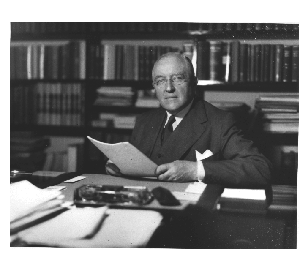Boris Alexandrovich Bakhmeteff

Boris Alexandrovich Bakhmeteff (1880-1951) was an engineer and a scientist, who, as fate would have it, became a diplomat. He was born in Tiflis (Russia) and graduated from the St. Petersburg School of Civil Engineering and Transportation.
His ties with the United States took root with his post-graduate studies: he spent almost a year studying hydraulics in the U.S. After returning to Russia, he taught theoretical mechanics, as well as general and advanced hydraulics at a number of universities and institutes.
In 1915-1916, Boris Bakhmeteff served as a Chief Plenipotentiary of the Central War Industrial Committee to the U.S. After the February Revolution, he became a deputy minister of industry and trade of the Provisional Government. In April 1917, he was appointed as head of the Extraordinary Russian Commission to the U.S. and Russian Ambassador representing the Provisional Government. Bakhmeteff arrived in the United States in June of 1917, and, as it turned out later, remained for the rest of his life.
In 1922 he had to abandon his diplomatic position. Soon after, he established the Lion's Match Factory, channeling much of his income through the Humanities Fund into supporting Russian émigré educational and charitable endeavors.
Bakhmeteff became a professor at Columbia University and published a number of scientific works on hydraulics and hydraulic engineering in English. He was one of the founders of the "mechanics of fluid" theory in the United States. In 1934 he claimed American citizenship and subsequently became active in the Republican Party. In 1945, Bakhmeteff was elected chairman of the Engineering Foundation, which grew largely by his efforts. It supported research projects in the related fields.
Boris Bakhmeteff was among those, who helped to establish the Archive of Russian History and Culture at Columbia University. Shortly after Bakhmeteff's death, the archive was included within the budget of the Columbia University Libraries and received a substantial portion of its operating costs from the Humanities Fund. In 1975, after the remainder of the Humanities Fund had been transferred to Columbia University, the archive was named in honor of Bakhmeteff.